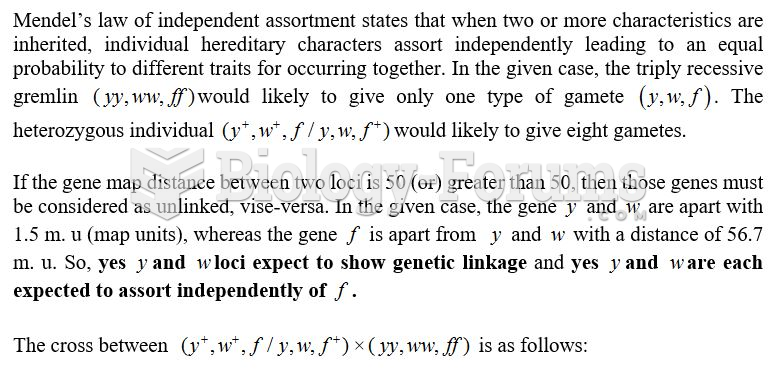|
|
|
As many as 20% of Americans have been infected by the fungus known as Histoplasmosis. While most people are asymptomatic or only have slight symptoms, infection can progress to a rapid and potentially fatal superinfection.
Most strokes are caused when blood clots move to a blood vessel in the brain and block blood flow to that area. Thrombolytic therapy can be used to dissolve the clot quickly. If given within 3 hours of the first stroke symptoms, this therapy can help limit stroke damage and disability.
Human stomach acid is strong enough to dissolve small pieces of metal such as razor blades or staples.
It is difficult to obtain enough calcium without consuming milk or other dairy foods.
More than 150,000 Americans killed by cardiovascular disease are younger than the age of 65 years.







